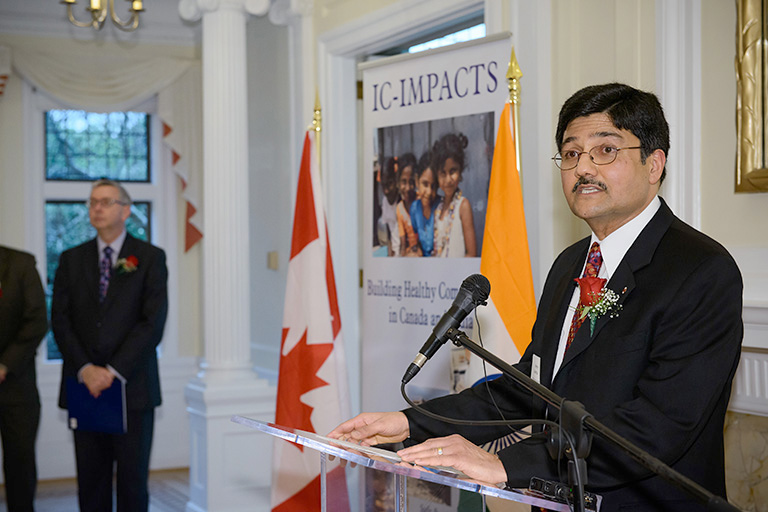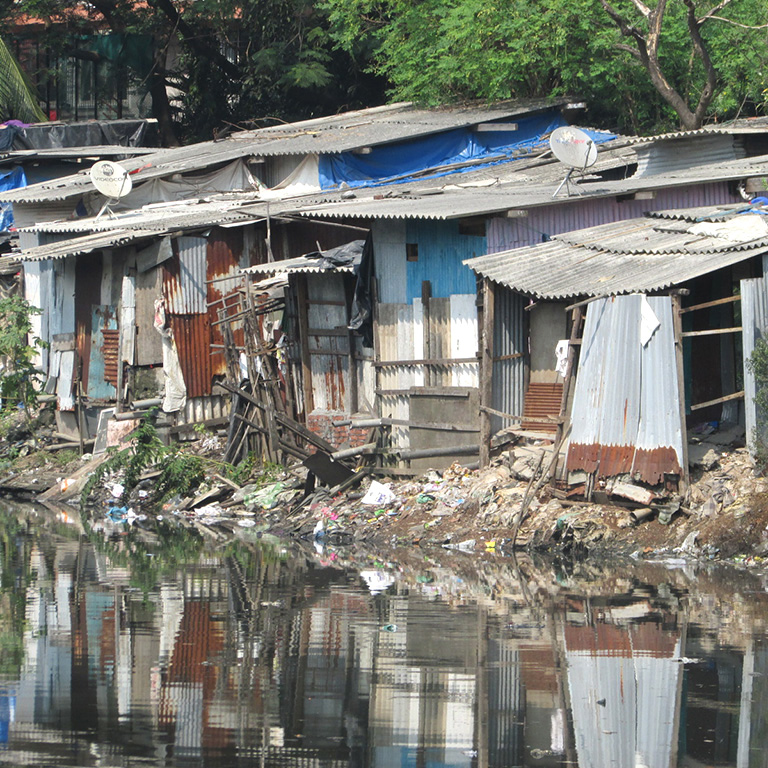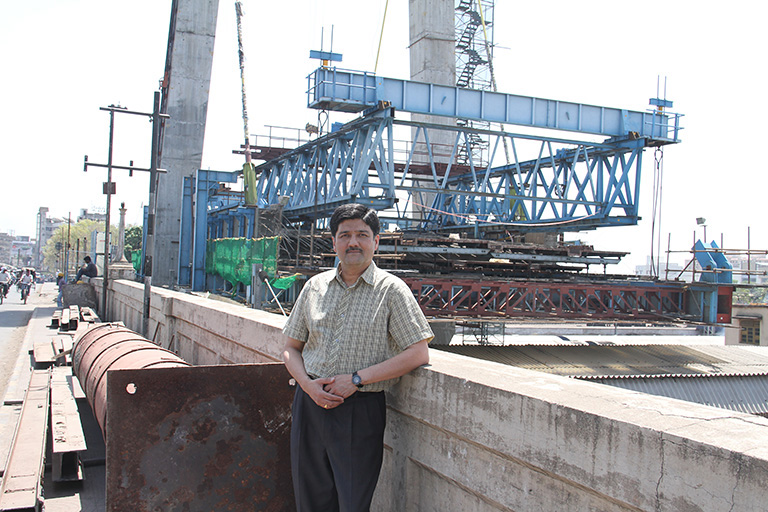IC-IMPACTS
Only a tiny amount – about 0.007 percent – of the world’s water is fresh, liquid and available on a sustainable base for we 7.23 billion (and counting) humans. It’s a vanishingly small amount, literally in what is our rapidly developing, industrializing and polluting modern world.
To keep the vital freshwater moving, humanity largely depends on concrete – about 3.7 billion tons (2012) per annum of cement are churned out; each ton produces almost a ton of CO2 along the way. Much of this cement goes into utilitarian but crucial infrastructure such as concrete pipelines and public housing which in turn are linked inexorably together: potable water in, waste water out.
It’s here where IC-IMPACTS is quietly working to affect change and for the better.
Spearheaded and lead by Dr. Nemy Banthia, IC-IMPACTS is the first and only Canada-India Research Centre of Excellence established through the Canadian Networks of Centres of Excellence (NCE) program and is the first International Research Centre of Excellence in the world.
As the host university, UBC and academic allies the universities of Alberta and Toronto, is working with IC-IMPACTS on a $30-million research program to mitigate, if not solve, three enormous yet insidious challenges. These involve: potable water, wastewater and solid-waste systems; residential, commercial and public buildings; transportation infrastructure (e.g. bridges and railways) and strategically important infrastructure (e.g. dams and heritage).
As these unobtrusive yet vital infrastructures age and become increasingly vulnerable to leakage, rupture or even collapse in seismically active areas, the need for remedial action becomes ever more important and as environmentally and cost-effectively as possible. These problems not only affect the IC-IMPACTS ‘partner communities’ in India and Canada, they affect the lives of millions of people across national boundaries.
In Canada, an estimated $31 billion is needed just to maintain existing water and wastewater systems with another $51 billion for new work. In India, $41 billion has been earmarked for water and wastewater infrastructure in the next five years.
Every year new infrastructure is needed, not just to keep up with population growth and squalling new demand but also to keep ahead of the repair and replacement of ever-aging, poor quality and/or increasingly inefficient or vulnerable systems.
Backed by its 61 partners, 158 researchers and 88 Highly Qualified Personnel (HQP) in training and ‘a holistic research approach’ that seeks low-cost yet effective solutions, IC-IMPACTS has come up with a number of potential workable and long-term fixes.
For example, using natural fibres such as cotton and agricultural waste to reinforce non-structural building materials or using fly ash (an overly plentiful waste product from thermal power plants) not only to replace expensive and eco-unfriendly cement in new construction but also to neatly and safely ‘lose’ vast amounts of the waste as well.
At UBC and abroad, the works go on.
“IC-IMPACTS is important because it allows us to find solutions to pressing societal problems linked to infrastructure, water and health in India and Canada through research and academic collaborations,” says Banthia.
“Through student training and mobility programs, it enhances friendship between peoples of two countries and promotes cultural understanding and goodwill. In the end, its targets are to build healthy and vibrant communities in our two great nations.”
For example, UBC PhD student Negar Roghanian with the Advanced Construction Material Research Group is looking to reduce the gradual, dangerous corrosive effects of sewage in concrete pipes and not only increase the longevity and ‘environmental friendliness’ of similar infrastructure but also equip it with passive yet cleanly effective anti-bacterial and anti-corrosion defenses.
In Canada alone, more than six million people live in small/rural communities. At any one time, more than 1,000 of these communities are under ‘boil water’ advisories, either temporary or in the case of 100 or so First Nations communities, bad water is a permanent danger.
Under the supervision of UBC professor and IC-IMPACTS advisor Dr. Pierre Bérubé, MSc candidate student Patricia Oka is developing a novel low-energy, relatively simple and easily maintained shallow hollow fiber ultrafiltration (SHFUF) system to remove viruses and other waterborne pathogens for up to 20 households at one time.
Large problems, yes, but Banthia believes the solutions can be found: “By bringing academic institutions, government departments and companies in two countries together, IC-IMPACTS helps promote economic activity and improves the quality of life.”
Read more about
International EngagementThis story also illustrates our commitment to:
Research ExcellenceRelated Content
“IC-IMPACTS is important because it allows us to find solutions to pressing societal problems linked to infrastructure, water and health in India and Canada through research and academic collaborations.”
Campus
Vancouver


